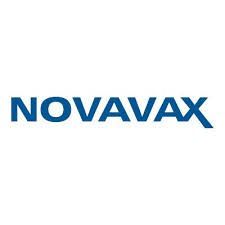Novavax Moving Forward with COVID-19 Vaccine FDA Submission
Results from the PREVENT-19 trial show the vaccine yields a 90% efficacy rate against symptomatic disease.

This article was originally published in ContagionLive.
New data shows Novavax Inc’s NVX-CoV2373 COVID-19 vaccine produced a 90.4% overall prevention of symptomatic disease.
The to-be-published data from the phase 3 PREVENT-19 trial, shared by the company Monday morning, would likely power Novavax’s bid to become the fourth COVID-19 vaccine regulated by the US Food and Drug Administration (FDA)—albeit at a time when vaccine supply has already met national demand.
The Vaccine
NVX-CoV2373 is a protein-based recombinant nanoparticle vaccine designed from the genetic sequence of the first SARS-CoV-2 strain, to generate S protein-derived antigen.
Preclinical assessment of the vaccine showed its capability to induce S protein bind-blocking antibodies, while remaining well tolerated by patients.
NVX-CoV2373 is stored at 2-8 degrees Celsius and is packaged in an immediate-use liquid formulation as 10-dose vials. It is designed as a two-dose administration, like mRNA vaccines BNT162b2 from Pfizer-BioNTech, and mRNA-1273 from Moderna.
The Trial
The PREVENT-19 trial is a randomized, placebo-controlled, observer-blinded assessment of NVX-CoV2373 for the prevention of COVID-19.
Investigators administered the vaccine and placebo 2:1 to 29,960 participants aged ≥18 years old from 119 different locations across the US and Mexico.
The PREVENT-19 primary endpoint was first occurrence of PCR-confirmed symptomatic COVID-19—defined as either mild, moderate, or severe in status—with onset ≥7 days after the second vaccine dose among previously uninfected adult participants.
An additional placebo-controlled, adolescent-based assessment of NVX-CoV2373, among 2248 participants aged 12-17 years old, is ongoing.
The investigators accrued efficacy endpoints from January 25 – April 30, 2021. As they noted, the B.1.1.7 variant originally observed in southeast England was the predominant SARS-CoV-2 strain at that time in the US.
What’s more, other Variants of Interest and Variants of Concern—per the US Centers for Disease Control and Prevention (CDC)—were on the rise during the trial’s endpoint accrual window.
The Findings
In Monday’s preliminary findings for PREVENT-19, investigators reported an overall vaccine efficacy of 90.4% (95% CI, 82.9 – 94.6) for NVX-CoV2373 after 7 days post-second dose among participants previously not infected with SARS-CoV-2.
Among the 77 cases observed at the trial endpoint, 63 were among placebo participants and just 14 were among the vaccine participants. All cases were defined as mild per trial protocol. The observed 10 moderate cases and 4 severe cases all occurred within the placebo group, indicating a 100% efficacy (95% CI, 87 – 100) against moderate or severe disease with NVX-CoV2373.
In assessment of the 54 cases with available sequence data, investigators reported that 35 (65%) were Variants of Concern, 9 (17%) were Variants of Interest, and 10 (19%) were other variants, per CDC standards.
Investigators observed a 100% efficacy (95% CI, 80.8 – 100) against variants not deemed “concerning” nor “of interest.” NVX-CoV2373’s efficacy was 93.2% (95% CI, 83.9 – 97.1) versus Variants of Concern and Variants of Interest.
In an assessment of high-risk populations—defined as persons >65 years old, ≤65 years old with high-risk comorbidities, or those at frequent COVID-19 exposure risk due to life circumstances—investigators reported a 91.0% vaccine efficacy (95% CI, 83.6 – 95.0) among the 75 relevant COVID-19 cases.
Investigators observed a 100% efficacy (95% CI, 80.8 – 100) against variants not deemed “concerning” nor “of interest.” NVX-CoV2373’s efficacy was 93.2% (95% CI, 83.9 – 97.1) versus Variants of Concern and Variants of Interest.
In an assessment of high-risk populations—defined as persons >65 years old, ≤65 years old with high-risk comorbidities, or those at frequent COVID-19 exposure risk due to life circumstances—investigators reported a 91.0% vaccine efficacy (95% CI, 83.6 – 95.0) among the 75 relevant COVID-19 cases.
Preliminary data indicated generally good tolerance of NVX-CoV2373, with few adverse events. In fact, no single adverse event term was reported by more than 1% of trial participants.
Injection site pain after either dose, lasting ≤3 days, were the most commonly reported local symptoms. Commonly reported systemic symptoms included fatigue, headache, and muscle pain, each lasting <2 days in vaccinated participants.
Next Steps
Novavax has expressed intent to file for regulatory authorizations in Q3 2021, once completing final process qualification and assay validation phases. Once regulated by authorities, the company is capable of manufacturing 100 million NVX-CoV2373 doses monthly by October 2021, and 150 million doses monthly by the end of the year.
The company is working with a “sense of urgency,” Novavax President and Chief Executive Officer Stanley C. Erck said in a statement, to complete regulatory submission and deliver the vaccine to a world in need of greater COVID-19 prophylaxes.
“Today, Novavax is one step closer to addressing the critical and persistent global public health need for additional COVID-19 vaccines,” Erck said. “These clinical results reinforce that NVX-CoV2373 is extremely effective and offers complete protection against both moderate and severe COVID-19 infection.”
That said, per The New York Times, Erck expects to first receive authorization for distribution outside the US; Novavax is applying for use with authorities for the UK, the European Union, India, and South Korea.
Experts indicated to the Times that Novavax may best serve the US at the mark when supplemental booster doses are advised for persons with waning immunity against emerging variants—either later this year or even further down the road.
Approximately 144 million, or 43.8% of the population, were fully vaccinated against COVID-19 in the US as of this weekend.